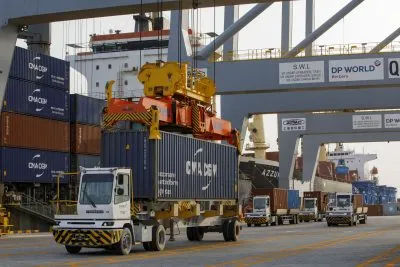The First Law of Economics, the joke has it, is that for every economist there exists an equal and opposite economist. The Second Law of Economics is that they are both wrong. Indeed, in my profession it often seems that way.
Take my fellow economist David Ndii, who recently wrote a lengthy and well-acclaimed paper making a case for less investment by African governments in infrastructure and more in agriculture.
In contrast, in most of my articles and speeches, and in a great deal of my firm’s work, you’ll see a significant emphasis on infrastructure as a means to growth, and on a lack of infrastructure being a significant bottleneck to development, including to development of the agricultural sector.
To put it in a different way: at Development Reimagined we take the view that agriculture cannot flourish without infrastructure, and to invest only in agriculture would be a waste of precious finance. But why?
Our emphasis, or “theory of change”, is partly explained by our headquarters being in China – a country a third the size of the African continent. China has made modern infrastructure – from high-speed rail to large-scale irrigation to internet connectivity everywhere, including in the most rural of locations – a major priority in its development strategy.
China has put this emphasis on infrastructure despite the fact that its agriculture sector – like those of most African countries – was and remains dominated by poor smallholder farmers, who were not particularly literate or productive before infrastructure improvements began to be made.
This raises the question, why has China felt that infrastructure is so crucial? And why do I agree?
Farmers must go to market
As an economist from a family that depends on agriculture to survive, I am painfully aware that agriculture cannot succeed on its own without infrastructure. Infrastructure is a necessary condition.
Farmers rationally grow crops either to eat them or to sell them in markets for a decent price. If logistical costs are high, that will eat into farmers’ revenues, often so much that farmers will not have any incentive to grow the crops well, or at all. And why might logistical costs be high? Because of poor infrastructure.
So if you invest in infrastructure, you cut logistics costs, you raise the return for farmers to sell their crops, and ultimately raise their incentives to take advantage of market opportunities. By investing in infrastructure, you invest in the agriculture sector.
David Ndii, meanwhile, argues that the vast majority of infrastructure projects on the African continent are white elephants, and have been too far from rural markets to really benefit farmers. Ndii argues that there has been an unproductive “infrastructure binge”, with the building of roads, ports, airports, hydropower plants and even railways.
Ndii is right that there has been a marked upturn, since the turn of the century in particular, in building large infrastructure in the region. However, there has been nothing even resembling a “binge” on the African continent, especially if we consider the continent’s potential role as the world’s manufacturing hub, which makes economic sense given future global demographic shifts that will lead to high labour costs everywhere else. It also makes sense for the region: farming on its own cannot provide sufficient jobs for African young people.
This is no binge
There has been no binge because even in Africa’s largest economies, from Egypt to South Africa, infrastructure is totally inadequate: 20% of South Africa’s citizens do not have access to any energy; Kenya’s figure is 29%. How can agricultural products have a chance of being processed in countries that have so little base energy supply?
Over 80% of Zambia’s citizens do not have access to the internet. Should Zambian farmers be relegated indefinitely to SMS text-message information systems, and not be able to access e-commerce? Of course, not, but only investment in digital infrastructure can provide these basics.
It is even difficult to claim a binge when it comes to ports, airports and rail. The largest port in Africa today is in Morocco. Its capacity is 9m standard containers a year (9m twenty-foot equivalent units or TEU). Tanzania is working to build a 20 TEU port in the coming years. That sounds big, but it will be only half the size of Shanghai, the world’s largest port.
To suggest that there has been a binge is to imply that there really is no expectation of economic activities as sizeable as China’s on the African continent in the coming years. This is despite the fact that by 2050 the continent will have almost double the number of people that China will have. What ports will we import and export our goods from if they are not expanded now?
Similar arguments can be made for airports and railways. The statistics all show that African countries, especially those that are landlocked, are far behind the rest of the world. Even if Ndii feels that the current pace of infrastructure investment is faster than before, it is still far too slow to meet the Sustainable Development Goals, or the African Union’s Agenda 2063 goals, or to make a significant dent in reducing logistical costs so that the agriculture sector can flourish.
China brags about having helped build – and to some degree financed – 10,000 kilometres of rail route on the continent; but this is equivalent to a third of South Africa’s rail network, which can hardly be called extensive. The uptick has been a small hill, hardly a mountain.
Beyond ribbon-cutting
Yes, many leaders have in recent years been able to break ground and cut ribbons to open projects that were simply African dreams dating from independence or before. That does not mean they were or remain white elephants. They do belong in Africa’s future, they are central to it, but the economic activity across the continent is just not yet strong enough. Indeed, there are many projects that have seen so much use their maintenance plans have been unable to keep up.
The reality is that there remains today a typical pattern for most African infrastructure maps. Infrastructure clings to the coasts and is still based on extractive planning from colonial times. This lingering pattern, despite the small uptick, is really what hurts farmers.
This is where Ndii and I can probably – despite being economists – agree. Overall, the pace of investment in manufacturing and in value-addition agriculture on the continent has also been far too slow. Private-sector investment on the continent has been too risk averse, reinforcing patterns of extraction and low-value trade. The loans that African countries have been able to extract to build infrastructure that creates public good – whether from China or the World Bank – have been far too expensive and short-term. This makes infrastructure spending look, wrongly, excessive. But it isn’t.
Spending on large infrastructure can be good for agriculture. It can be very good for farmers. It just needs to be cheap, and long-term.
Related articles
Want to continue reading? Subscribe today.
You've read all your free articles for this month! Subscribe now to enjoy full access to our content.
Digital Monthly
£8.00 / month
Receive full unlimited access to our articles, opinions, podcasts and more.
Digital Yearly
£70.00 / year
Our best value offer - save £26 and gain access to all of our digital content for an entire year!


 Sign in with Google
Sign in with Google 






